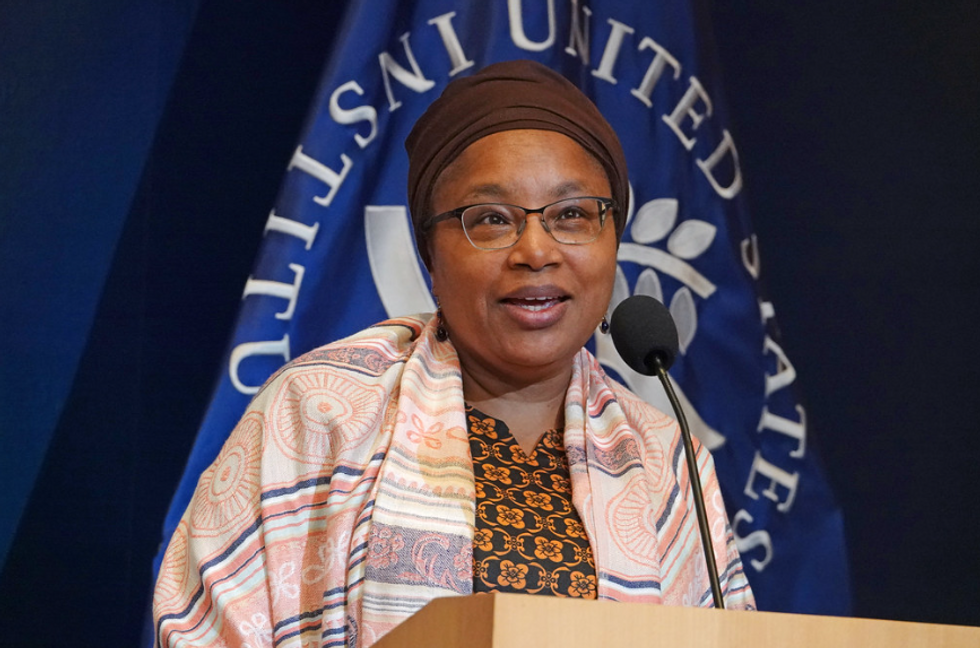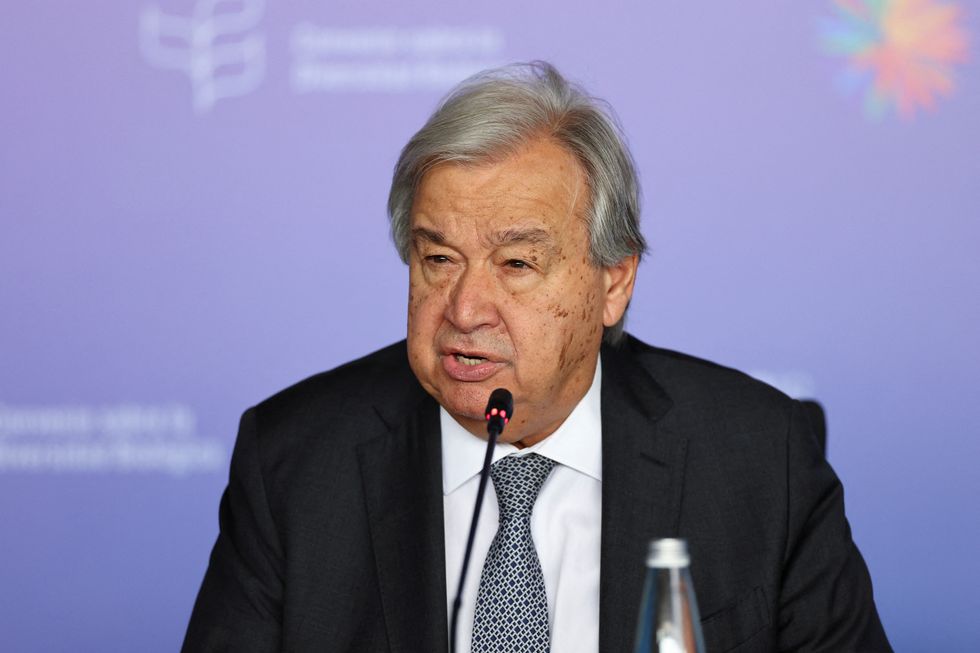UN advisor ‘sacked’ after ‘REFUSING to accuse Israel of genocide’
A senior United Nations adviser on genocide has left her post amid claims she faced pressure to label Israel’s actions in Gaza as genocide but refused to do so.
Alice Wairimu Nderitu departed on Tuesday after completing a four-year term as special adviser to the UN secretary-general on the prevention of genocide.
The Wall Street Journal reported that her contract was not renewed because she resisted pressure within the organisation to classify Israel’s war against Hamas as a potential genocide.
Her departure has sparked controversy, particularly as it follows a recent UN special committee report which alleged that Israel’s warfare in Gaza shows characteristics of genocide.

Nderitu had consistently emphasised the limitations of her advisory role during public statements about the Gaza war.
As special adviser, Nderitu’s role did not include the authority to officially identify cases of genocide.
Her mandate was specifically focused on raising early warnings about situations that could potentially lead to genocide.
This limitation was highlighted by Ernesto Verdeja, executive director of the Institute for the Study of Genocide, who confirmed that Nderitu “is not permitted by the mandate of her position to declare a case as a genocide, regardless of whether she believes it is happening or not.”
Reports suggest her cautious approach put her at odds with Volker Türk, the UN high commissioner for human rights, and the UN special committee investigating Israeli practices.
In a 2022 paper, Nderitu emphasised that the term genocide was often misused and required proof of intent to destroy an ethnic group.
UN officials strongly denied claims that Nderitu was being pushed out of her position.
A spokeswoman for UN high commissioner Türk stated that “any insinuation that the secretary-general or the high commissioner pushed her out is false.”
UN Secretary-General Antonio Guterres praised Nderitu as “a strong advocate for peace, a strong advocate for conflict prevention,” according to a spokesman.

The UN maintained that she was simply leaving after one term, as was customary for the role.
However, this explanation has raised questions, as Nderitu’s predecessor, Adama Dieng, served two four-year terms in the position.
The two advisers who served before Dieng each completed no more than four years in the role.
The position of special adviser on genocide prevention was established in 2004 under then-Secretary-General Kofi Annan.
It was created in response to a security council resolution calling for improved early warning systems.
This development came following the UN’s failure to intervene in the 1994 Rwanda massacre, where 800,000 people were killed.
During her tenure, Nderitu had been active in warning about potential genocides, particularly regarding the conflict in Sudan.
In September, she told the Human Rights Council about Sudan: “There we see all the risks and indicators for the crime of genocide.”
She has consistently emphasised the precise legal definition of genocide, noting in a 2022 paper that “only a few events have been determined by competent judicial bodies to constitute genocide.”

